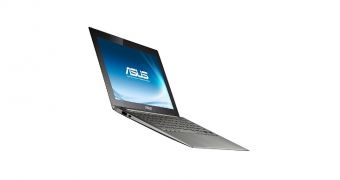Ultrabooks may not have impressed anyone with their shipment levels yet, but that doesn't mean they aren't going to do it later.
It is the belief of IHS iSuppli that ultrabooks will rapidly catch on once they really start shipping next year.
This prediction is in something of a stark contrast with the initial sales of such laptops, which proved underwhelming at best.
Then again, it wasn't so much competition from tablets or low specs that caused this slow start, as it was the high price that ultrabooks have right now.
Future models will have convertible form factors and touchscreens, though, so if the price does start to fall properly, there isn't any reason they shouldn't reel in customers.
For those who want numbers, iSuppli expects super-thin laptops to secure a share of 13% in 2012 (up from 2% in 2011), then 28% in 2013, 38% or more in 2014 and, finally, 43% in 2015.
Actually, if things go smoothly enough, the 40% threshold should be attained as early as the early months of 2015.
“With the introduction of the ultrabook, the computing industry is poised for yet another paradigm shift. The technology now exists that actually could bring about a convergence of major mobile devices,” said Len Jelinek, research director and analyst, semiconductor manufacturing at IHS.
“If an attractive price point can be achieved and the consumer deems this a must-have product, the entire semiconductor manufacturing supply chain could rapidly reorient itself to serve the fast-growing ultrabook market.”
As ultrabook adoption grows, flash memory will start to sell better, since SSDs are commonplace on these laptops. By extension, the slowdown in sales of semiconductors could be remedied as well.
“In the age of the ultrabook, the demand for technology would not be limited to only a few companies. Ultrabooks require a comprehensive bill of materials, so companies focused on memory, logic and power management all would participate in the revitalization of demand,” said Mr. Jelinek.

 14 DAY TRIAL //
14 DAY TRIAL //